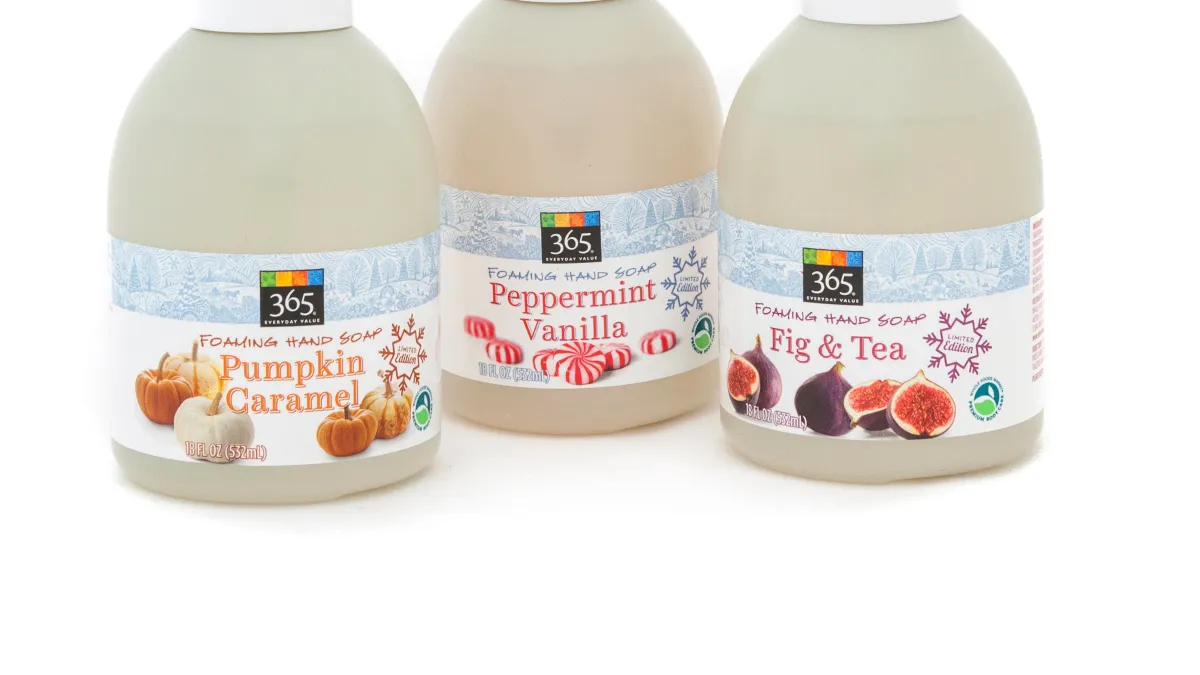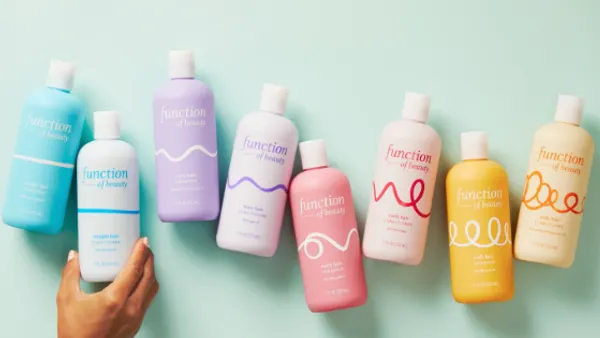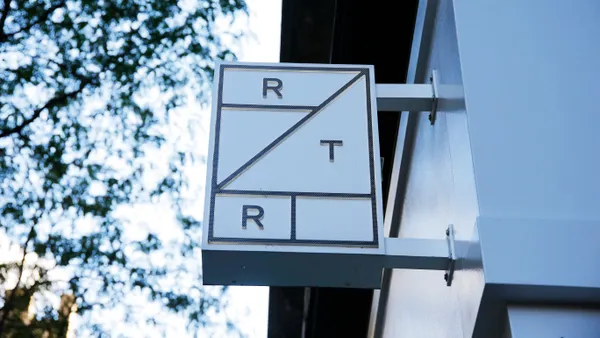Dive Brief:
- Amazon has sold $1.6 million worth of Whole Foods private label products since it assumed ownership of the grocer in late August, according to a recent study from One Click Retail cited by The Wall Street Journal. During its first week, Amazon sold $500,000 worth of Whole Foods store brands online, then saw that number dip to around $300,000 per week after that.
- Top selling items were deli turkey and coconut water, while snacks and candy had the highest sales of any category, with 19% of sales. The lowest-selling categories were condiments and health and beauty products.
- Private label sales currently makes up 15% of Whole Foods’ annual revenue. Nationwide, store brands contribute more than $150 billion in yearly sales for grocers, according to the Private Label Manufacturers Association.
Dive Insight:
Online sales of Whole Foods’ private label items have been more robust than Amazon anticipated. According to reports, the e-commerce giant ran into supply issues after its first week at the helm of the natural and organic grocer, and saw sales dip as it replenished stocks.
It’s a bit surprising to hear that Amazon didn’t have enough product on hand to fill orders. But the bigger takeaway is the high demand for Whole Foods’ exclusive products, including 365, one of the strongest store brands in the industry. Expect Amazon to fix its supply issues, and to continue building out sales of Whole Foods’ brands online in the months to come.
Analysts point to the grocers’ private label assortment as one of the biggest assets Amazon gained in its acquisition. With 365 and other brands, Amazon now has a lineup that shoppers equate with both quality and value. The online retailer will no doubt expand 365’s assortment while also building out its own brands, which currently include a limited selection of snacks and other pantry items.
Amazon is positioned to be a formidable private label retailer in the years to come, both through Whole Foods stores and Amazon.com. But the company will need to work hard to stand out against competitors that are taking its threat to the industry very seriously. Last week, Walmart-owned Jet.com announced it will release its own grocery line, Uniquely J. Although details are scant at this point, the new line will no doubt compete with Amazon’s private label offerings on price, and will work hard to win over the same affluent millennial consumers that Amazon and Whole Foods are targeting.
Amazon may have a tougher road ahead than many realize. Refashioning Whole Foods’ price image will be no easy task, with many analysts pegging the grocers’ markup at 15% over conventional retailers. Amazon boosted store traffic with an opening round of price cuts, but since then enthusiasm has waned as word has gotten out that overall prices remain unchanged.
Amazon is hard at work with more price cuts and promotions aimed at boosting traffic. But will it be able to create sustained demand in the face of intense competition while also maintaining Whole Foods’ reputation for high quality and niche specialty products? News that the grocer will further centralize its buying operations has industry observers saying it’s about to lose a lot of local products — a change that could damage its reputation among loyal customers.














